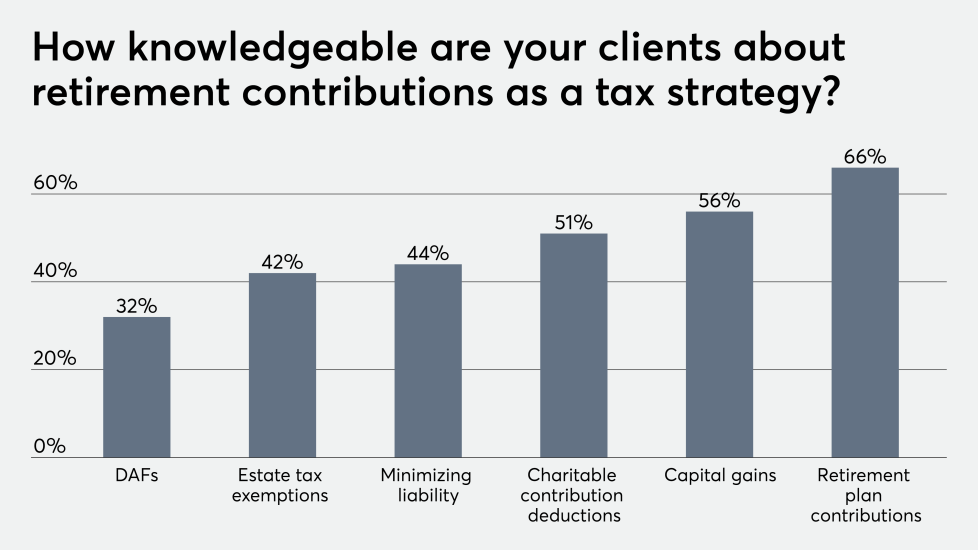Despite the massive economic disruption that has accompanied the response to the coronavirus pandemic, clients aren't quite pressing the panic button. If anything, the outbreak could encourage more retirement savers to think seriously about their long-term financial well-being.
Advisors polled in Financial Planning’s most recent Financial Wellness Report indicated that they are placing a premium on financial education and literacy these days, and that the fallout from the COVID-19 pandemic has helped bring some of those issues into focus.
"I think given the recent outbreak of COVID, clients are a lot more concerned about their savings and the welfare of their families," one advisor says. "The economic uncertainty and rates of unemployment have many people worried."
Here are some of the report's key findings:











